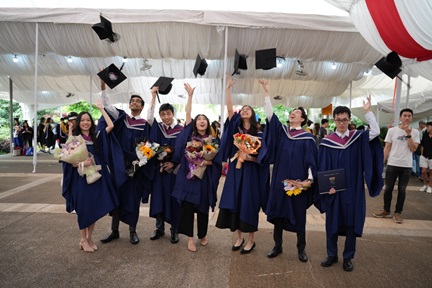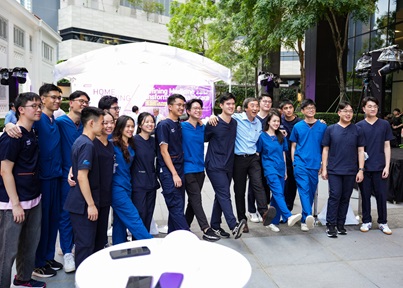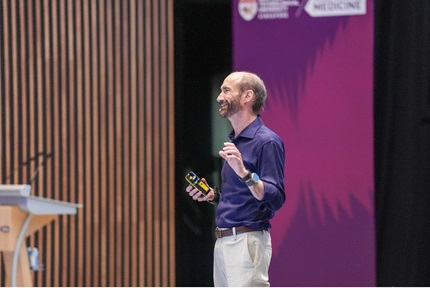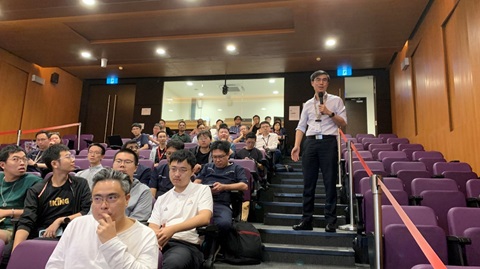LKCMedicine, SRIS, and Celligenics collaborate on new therapy for chronic wounds
Scientists from Nanyang Technological University, Singapore (NTU Singapore), the Skin Research Institute of Singapore (SRIS), and local biotech start-up Celligenics are working together to develop accessible and affordable therapies to accelerate healing in chronic wounds such as diabetic ulcers and bed sores.

Researchers applying the novel treatment gel onto a wound model.
The collaborative research effort, led by Professor David Becker, an expert on tissue repair and regeneration at NTU Singapore’s Lee Kong Chian School of Medicine (LKCMedicine) and at SRIS, will see the team of scientists formulating proof-of-concept wound healing patches, gels, or sprays using a regenerative extract developed by Celligenics, a spin-off from the Agency for Science, Technology and Research (A*STAR).

The Scientists from LKCMedicine, SRIS and Celligenics.
This regenerative extract is derived from stem cells obtained through Celligenics’ proprietary stem cell technology, which are able to stimulate cell repair. Preliminary data suggest a one-third acceleration in wound closure upon treating wounds with this extract – highlighting the extract’s potential in addressing the needs of chronic wounds.

Application of Celligenic’s treatment gel onto a wound model.
The prototypes developed by the NTU-SRIS-Celligenics team are being tested on a first-of-its-kind wound healing platform developed by SRIS, a tripartite partnership between A*STAR, the National Healthcare Group, and NTU. This platform, which was funded as a project under the Wound Care Innovation for the Tropics (WCIT) programme, captures many of the features of human chronic wounds, unlike existing platform technologies.
Chronic wounds such as diabetic foot ulcers and venous leg ulcers, if left untreated, can lead to amputations, or even death if bacteria from the wound enters the bloodstream. In Singapore, there are at least four diabetes-related lower leg amputations daily. Currently, dressings for chronic wounds are physical barriers; none offer biological actives that stimulate the body’s healing process. Through this research collaboration, NTU LKCMedicine, SRIS, and Celligenics hope to come up with a new therapy that will help stimulate the healing process.






